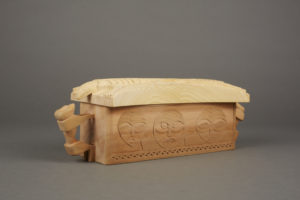When I was in Spain during college I lived in a little town on the bay of Cadiz called El Puerto de Santa Maria. Christopher Columbus had visited the community in 1480 and his pilot, Juan de la Cosa spent time in the town and drew his famous world map there in 1500. The big city across the bay, Cadiz, was where Columbus set sail on his 2nd and 4th voyages. It made sense to me that this place celebrated Spanish history and the bravery and ingenuity of those who wanted to see the world, who were explorers and who did amazing things in the name of discovery.
However as a young adult in high school Spanish class we studied Hernan Cortes and the brutality of the conquistadors. I learned about the history of native peoples in my anthropology class at University of Arizona. I know that the Americas were fully inhabited by people who were often tricked, abused, and robbed as the Spanish and others arrived. It has therefore always been interesting to me that in the US we celebrated Columbus, given the deep damage done to the people of this land.
Today is celebrated here in Portland as Indigenous People’s day because after many years of listening to native folks, instead of honoring those that led the tide of murder, disease, and land grabs we take today rather to remember the many cultures that were destroyed and oppressed.

Greg Robinson (American and Chinook, born 1957), The High Status of Salamander, 2014, yellow and red cedar, Gift of Barbara Christy Wagner, © Greg Robinson, 2014.92.3
One of the folks from our Parish shared today about the Chinook people, those who lived on this land for thousands of years. Even after Columbus, Europeans continued to colonize and destroy, meaning that today the Chinook people are having to work hard to maintain their language and reclaim their traditions. In honor of these people whose land is now our home my parishioner donates to the tribe for this work. Today I am following her example, and will do so annually to honor the amazing richness of the people of this place, and to celebrate their bravery and ingenuity. You can join me in this at the Chinook Nation link here.
It is important, wherever we are, to learn the stories of our place, and to think about and wrestle with how to honor the ones who came before and how to live justly in light of the unspeakable acts that sometimes occurred in our past. This is the work of reconciliation and therefore is holy and good.
-Eilidh

Recent Comments